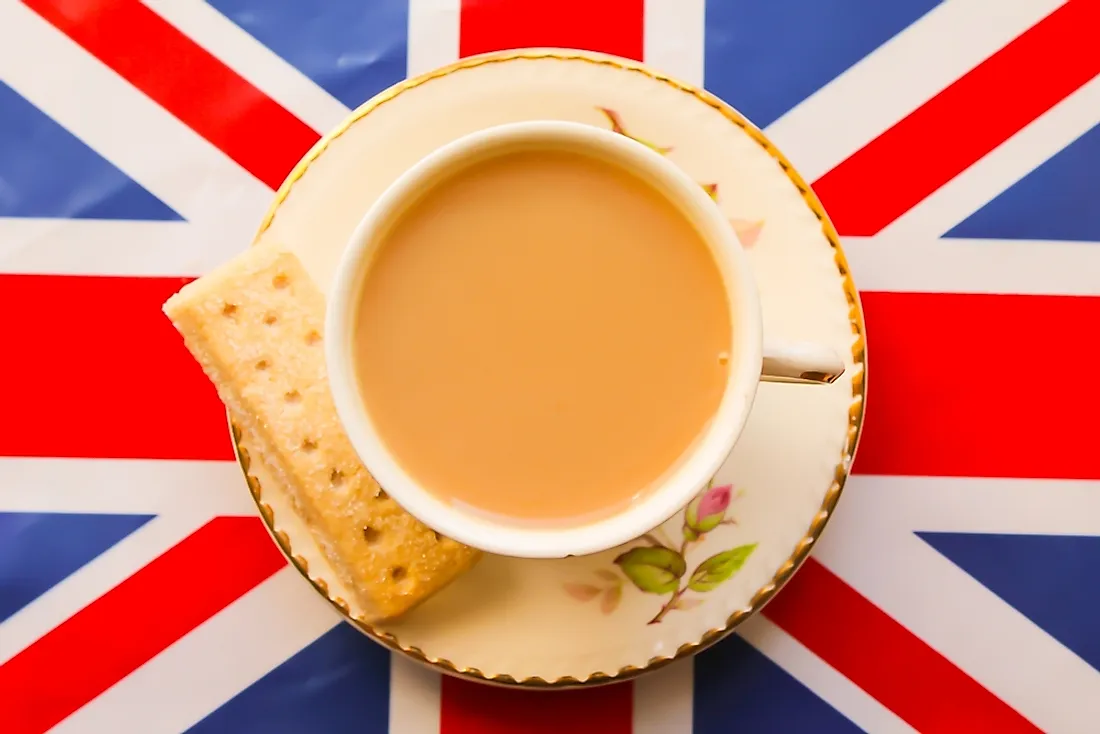Rulog Blog in Antartica
United Kingdom (British Antarctic Territory)
British Culture
The culture of United Kingdom is diverse and influenced by various factors such as history, religion, geography, and immigration. It includes literature, art, music, theatre, cinema, fashion, architecture, cuisine, sports, and festivals. Some notable aspects of British culture include the Royal Family, afternoon tea, the pub culture, Shakespeare, Harry Potter, football, cricket, and the Edinburgh Festival. The UK is also known for its multiculturalism, with a mix of various ethnicities, languages, and religions represented throughout the country.
British Cuisine
British cuisine has a particular set of cooking traditions that are associated with the constituent countries of the UK. A few centuries ago this cuisine comprised mostly of dishes crafted from local ingredients and served with simple sauces to enhance the flavor. The growth and the expansion of the British Empire in India brought the Indian food traditions of strong spices and herbs. Curry is now a national favorite having been brought into the country by Indian migrants. Although the cooking traditions and styles have primarily remained the same, over the years the food and drink in the UK has changed as a result of the growth of commercial eateries. People have less time to cook as they spend more time at work and school.
Culture of the United Kingdom
is influenced by its combined nations' history; its historically Christian religious life, its interaction with the cultures of Europe, the individual cultures of England, Wales and Scotland and the impact of the British Empire. The culture of the United Kingdom may also colloquially be referred to as British culture. While Northern Ireland is not geographically part of Great Britain, it may still be considered as having a place within British culture. Although British culture is a distinct entity, the individual cultures of England, Scotland, Wales and Northern Ireland are diverse. There have been varying degrees of overlap and distinctiveness between these four cultures.[1]
Throughout its history, British culture has been profoundly shaped by waves of migration. Notably, the arrival of Celtic and Germanic tribes influenced its early development. The Celtic peoples introduced unique languages, traditions, and social structures. Subsequently, the migrations of Germanic tribes, such as the Anglo-Saxons, further influenced Britain’s cultural landscape. The ancient Roman occupation of Britain, lasting almost 400 years, also impacted the linguistic and cultural identity of Great Britain. In the 21st century, British culture continues to be influenced by contemporary migration.
British literature is particularly esteemed. The modern novel was invented in Britain, and playwrights, poets, and authors are among its most prominent cultural figures. Britain has also made notable contributions to music, cinema, art, architecture and television. The UK is also the home of the Church of England, the state church and mother church of the Anglican Communion, the third-largest Christian denomination. Britain contains some of the world's oldest universities, has made many contributions to philosophy, science, technology and medicine, and is the birthplace of many prominent scientists and inventions. The Industrial Revolution began in the UK and had a profound effect on the family socio-economic and cultural conditions of the world. As a result of the British Empire significant British influence can be observed in the language, law, culture and institutions of its former colonies, most of which are members of the Commonwealth of Nations. A subset of these states form the Anglosphere, and are among Britain's closest allies. British colonies and dominions influenced British culture in turn, particularly British cuisine. Sport is an important part of British culture, and numerous sports originated in the country including cricket, football, tennis and rugby.
The UK has been described as a "cultural superpower", d London has been described as a world cultural capital. A global opinion poll for the BBC saw the UK ranked the third most positively viewed nation in the world (behind Germany and Canada) in 2013 and 2014.
TRADITION
Cheese Rolling
Morris Dancing
This type of dance is typically performed on specific occasions and seasons such as early summer for Oxfordshire and during Christmas and New Year for Yorkshire. However, Morris Dancing can still be performed in other instances.
I wrote an article here for an in-depth look at Morris Dancing in the UK. I encourage you to read to know more about this English tradition.
Regatta
The regatta is a boat race between the rowing teams of Oxford and Cambridge Universities.
The contest dates back to 1829 as a result of a challenge between two friends, Charles Wordsworth (Oxford) and Charles Merrivale (Cambridge.) Now, the race is held annually sometime during the Easter vacation on the River Thames in southwest London.
The racecourse is known as the Championship Course. It is almost 7 kilometres long and is located between Putney and Mortlake.
BELIEFS
Freedom Of Religion In The United Kingdom
The United Kingdom, comprised of England, Scotland, Wales, and Northern Ireland, guarantees freedom of religion to its citizens and residents through 3 different regulations. One of these laws is the European Convention on Human Rights, which guarantees the right to free religious choice. Although freedom of religion is well established and practiced, some religious preference is given by the government. In the case of the monarchy for example, only Protestants may become king or queen (although they are now free to marry Catholics without losing their succession to the throne). Additionally, the Church of England is the state church of that country and the monarch swears an oath to protect both the Church of England and the Church of Scotland. Residents of the UK follow several different beliefs. Those beliefs are discussed below.







This was such a detailed and engaging overview of British culture—from cuisine and literature to quirky traditions like cheese rolling! It's always fascinating to see how history and modern influences shape a nation's identity. If you're into exploring cultures with rich colonial history and stunning landscapes, I’d recommend checking out Darjeeling too. Here's a great resource: https://northbengaltourism.com/darjeeling-tour-packages/
ReplyDelete